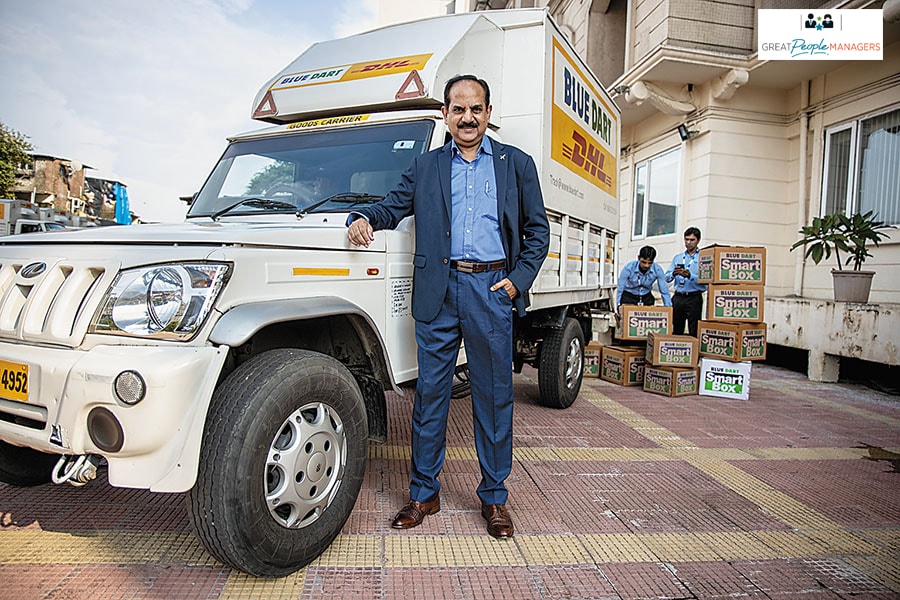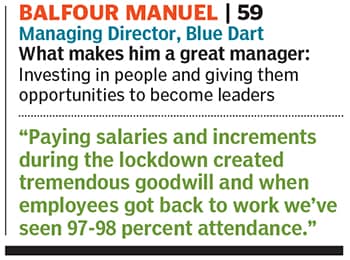
Balfour Manuel: Leading with empathy
Blue Dart's managing director has been taking care of employees as Covid-19 hit, even as he future-proofs the business
 Balfour Manuel
Balfour Manuel
Image: Arpit Jain for Forbes India
When Covid-19 hit, Balfour Manuel moved fast to reassure his 19,000-strong army of on-the-ground employees. The company made sure salaries were paid and also went ahead with the regular cycle of salary increases. “This created tremendous goodwill and, when employees got back to work, we’ve seen 97-98 percent attendance,” says the managing director of Blue Dart.
Manuel has spent all of his 36-year career with Blue Dart. He joined in late 1983 straight out of his MBA from Mumbai University when the business plan was still being drawn up. Market surveys were done and banks and shipping companies were identified as top target customers.
He has seen upfront the challenges of keeping staff motivated. In the late 1980s, courier companies—there were only Blue Dart, Airfreight Limited and Skypak—would book seats on business class, which meant courier documents didn’t have to be checked in. This was done to ensure customers got their packages before 10.30 am the next day. As a result, couriers got a chance to rub shoulders with someone like JRD Tata on a flight. Stories like this worked as advertisements to attract them to the job. In time, the network expanded to international destinations like London and Hong Kong.
“Balfour has good knowledge of the business ground-up, excellent customer orientation and engages well with team members across levels,” says RS Subramanian, MD, DHL Express India and a board member of Blue Dart.

While growing the company Manuel has made sure employees are given the opportunity to grow. A new joinee can some day aspire to get to the level of vice president. Since 1983, Blue Dart has had a death benevolent fund where the entire organisation pledges a day’s salary, resulting in a significant amount. There are also allowances for employees to take university courses and upgrade their skills.
With employee satisfaction taken care of, Manuel is spending a lot of time thinking about the business of the future. The pandemic has accelerated the push towards contactless delivery. “All the customer has to do is share an OTP and we have done away with the requirement for a signature,” he says.
Next on his agenda is working on predictive analytics to understand the best time for delivery, and installing lockers in IT parks where parcels can be collected from. It would help the company smoothen its delivery processes and make it a preferred choice for customers in an era where the lack of paper documentation has resulted in courier companies fighting hard to grow their business.
(This story appears in the 30 November, -0001 issue of Forbes India. To visit our Archives, click here.)








